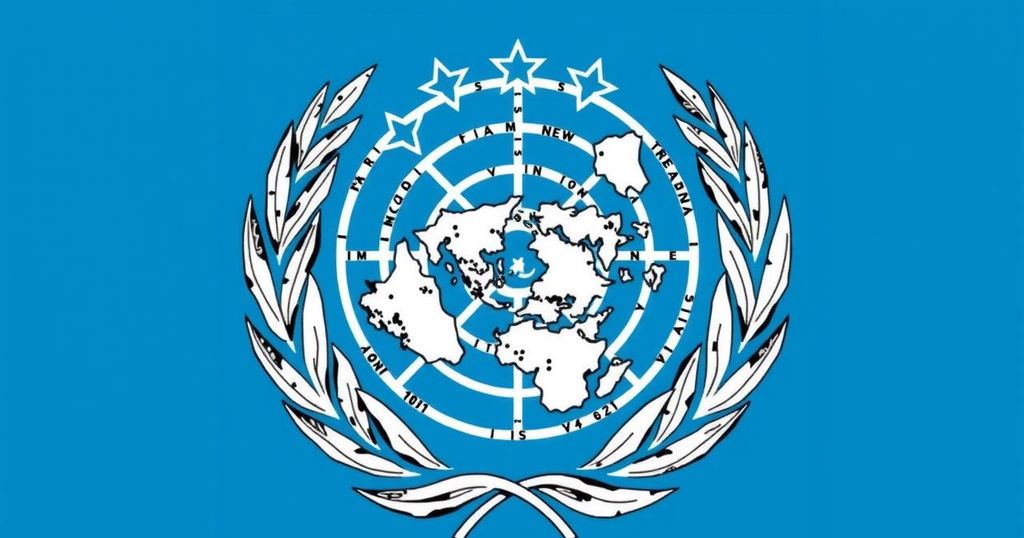Global news
Politics
AMERICA FIRST POLICY INSTITUTE, ARGENTINA, ASIA, AZERBAIJAN, BAKU, BUENOS AIRES, CUBA, DEMOCRACY, DONALD TRUMP, EL, FLORIDA, FOREIGN POLICY, INTERNATIONAL RELATIONS, ISRAEL, MA, MAURICIO MACRI, MILEI, NORTH AMERICA, SANCTIONS, SOUTH AMERICA, TRADE RELATIONS, U. N, UN, UNITED NATIONS
Marcus Li
0 Comments
Argentina’s Controversial Vote Against U.N. Resolution Highlights Political Shift
In a surprising move, Argentina became the sole nation to oppose a U.N. resolution condemning violence against women under President Javier Milei. This vote, reflective of a broader shift towards an isolationist and conservative foreign policy, has prompted criticism from various political sectors, raising concerns about Argentina’s alignment with progressive international norms and its future diplomatic relations.
In a striking move, Argentina became the only nation to vote against a United Nations resolution condemning violence against women and girls, a decision that caught global attention and ignited widespread criticism. This action occurred under the leadership of Javier Milei, the country’s newly elected president, known for his far-right stance and significant shifts in foreign policy. His administration recently drew backlash by withdrawing support from international norms and agreements, reflecting a transformative approach that is reminiscent of the policies embraced by former U.S. President Donald Trump. Argentina’s solitary ‘no’ vote at the U.N. not only highlighted its departure from historically progressive values but also reinforced concerns about Milei’s intentions to realign the country’s diplomatic relations more closely with those of the United States and Israel. This isolationist pattern was further evident as Argentina rejected collective commitments on gender equality during the recent Group of 20 summit, stirring discontent among political allies and diplomats alike. The President’s disregard for international norms extended beyond gender issues; Milei’s administration has sparked cultural conflicts domestically by abolishing key government ministries focused on women and environmental issues. Critics, including prominent members from the opposition, characterized this as a damaging step backward. Senator Martín Lousteau labeled the U.N. vote as “a disgrace”, while other officials attempted to justify the decision based on a belief that treaties do not effectively address the complexities of gender violence. Milei’s aggressive changes are not limited to symbolic gestures. In recent months, he has demonstrated a readiness to undermine longstanding diplomatic ties by dismissing key officials who oppose his radical policies. His administration’s cavalier attitude towards the global consensus has prompted concerns about further isolation from the international community, particularly as the left-leaning Peronist movement, which dominated Argentine politics for years, aggressively contests this shift in direction.
The political landscape in Argentina has undergone a remarkable transformation with the election of President Javier Milei, who has enacted a series of radical changes in both domestic and foreign policy. Traditionally recognized as a socially progressive nation in Latin America, Argentina’s latest actions at the United Nations have surprised many observers globally. The vote against a U.N. resolution aimed at combating gender violence starkly contrasts with the country’s previous stances and highlights a broader trend towards a more conservative and isolationist ideology under Milei’s administration.
Argentina’s recent decision to vote alone against a U.N. resolution aimed at ending violence against women reflects profound shifts in its political direction under President Javier Milei. This decision, alongside other radical policy changes, signals a departure from progressive values that have characterized Argentina’s international relations. The backlash from various political sectors emphasizes concerns over potential isolation and the implications of such drastic shifts in foreign diplomacy.
Original Source: www.clickorlando.com




Post Comment